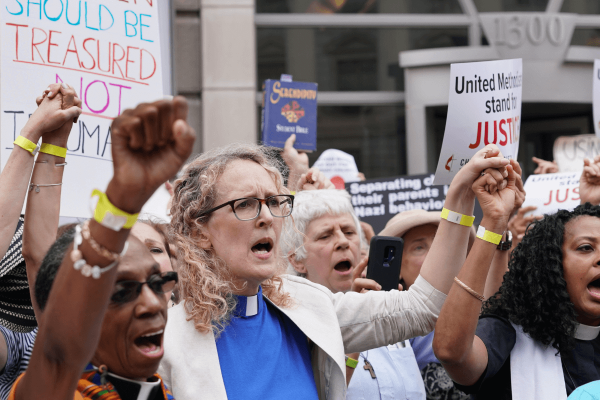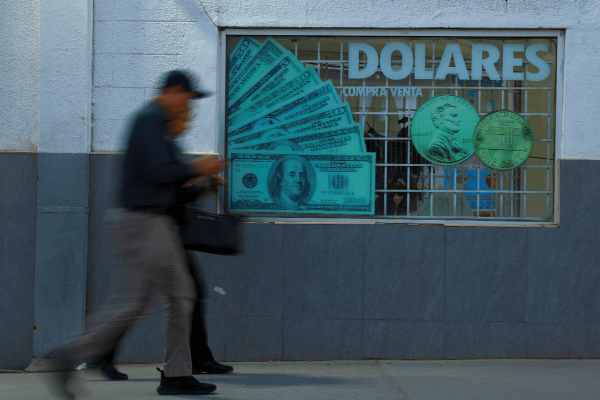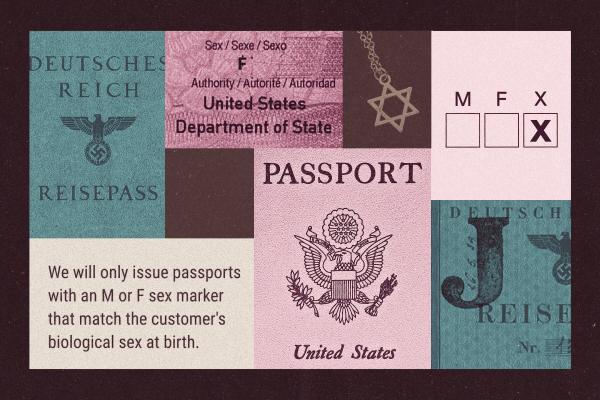Rev. Jen Butler was already heading to Chicago for the Democratic National Convention when she got the call that she had been hired to lead faith outreach for the Harris-Walz campaign.
The veteran faith organizer founded Faith in Public Life in 2005 and led the network of liberal faith leaders until 2022. When she left, she turned toward supporting work combatting global religious nationalism, Christian nationalism in the U.S., and political campaigns.
“It’s one of the reasons I stepped down [from Faith in Public Life],” Butler told Sojourners. She had supported issue-based campaigns before, but as she thought about the 2024 campaign, the contrast between a Democratic nominee and former President Donald Trump — who she described as an “autocratic strongman that's going to control everything” — felt “existential.”
So, when Vice President Kamala Harris and Gov. Tim Walz became their party’s nominees and a slot opened up for a national faith engagement director, Butler applied.
“One of the big priorities is to really reclaim faith for justice and help Americans understand what's at stake in this election, in terms of both their faith and our democracy and our freedom,” Butler said of her goals for her new role. “As a liaison between the campaign and faith groups, I want to be sure that everybody has what they need to get the message out, [and that] people who want to be involved, feel involved and connected to Harris and Walz.”
Butler, an ordained minister in the Presbyterian Church (USA), previously served as chair of the White House Council on Faith and Neighborhood Partnerships under President Barack Obama from 2015-16. She served alongside Bishop Carroll A. Baltimore, Rachel Held Evans, Rev. Traci Blackmon, and numerous other faith leaders. The council was tasked with making recommendations to the president on addressing poverty and inequality. At the end of their work, the council submitted a 72-page report to the administration.
In her new role, first reported by Religion News Service, Butler will look to expand on the faith organizing of the 2020 Biden-Harris campaign, which touted over 1,600 endorsements from a diverse group of faith leaders. She described the importance of reaching out to Catholics in the “blue wall” states like Pennsylvania, engaging with Hindu and Sikh leaders, and coordinating interfaith events.
“My job is to create some coalition tables and information flows that enable [faith leaders] to plug in and get the word out,” she told Sojourners.
Butler said she won’t need to hire any staff under her, and that the campaign is running “like clockwork.”
When asked about her time serving on the White House council, she highlighted the diversity of faith leaders she worked with, from a leader of the conservative Salvation Army to the first trans woman to serve on a White House council. That experience, she said, contrasts with Trump and the Republican Party “advocating for conservative Christian control and the tamping down of human freedom for Christian nationalism.”
Butler said she wasn’t sure whether the Harris-Walz campaign had ironed out plans for how their potential administration would support the White House Office of Faith-Based and Neighborhood Partnerships. She said she imagined Harris would want to continue President Joe Biden’s efforts to “build that office out to its former glory” after it had been “hollowed out” by Trump.
Despite working on a number of progressive policy issues over her career, Butler has held partisan politics at arms-length, telling the New York Times in 2017 that religious leaders on the Left “challenge the Democratic Party as much as we challenge the Republican Party.”
“Never will we be beholden to one political party, because that is idolatry,” she told the Times. When asked how this contrasted with her current efforts to elect a Democratic president, she said her thinking “has not changed at all.”
“You do not want to be beholden to anything but God and your moral values,” Butler told Sojourners. “If I see the Democratic Party running astray from that, then I will criticize them. If they ever became a party of violence and mayhem and chaos, like the Republican Party has become, I would pray to God that I have the courage that so many ‘Never Trump’ Republicans have had. Stepping out in the crowd is an exceptionally hard thing to do.”
When asked whether she would challenge the Democratic candidate to shift course in arming Israel’s military campaign in Gaza, Butler said she was glad to see Harris say it was time to end the war in a way the ensured Israel’s security, the release of hostages, and the ending of Palestinian suffering.
“I’ve worked throughout my career for the security of Israel and the security of Palestine. Both have been extremely important to me, and I was glad to see her strike that balance,” she said.
Butler acknowledged that her job as liaison requires both that she communicate the message of Harris-Walz to faith leaders and amplify the message of faith leaders to Harris-Walz, including criticism faith leaders have for the Democratic Party. Butler’s own denomination declared Israel an “apartheid state” in 2022. This year, PC(USA) voted to divest investments because of the investments contributing to Israel’s human rights abuses in Palestine.
“One thing I try to convey to folks is that this a very complex global issue. It's going to take some time to sort out, and it has to move fast at the same time,” Butler said. “Sometimes people seem to think you can wave a magic wand, or that the U.S. has so much power we can push a button and stop it … A part of what I try to do in my education is talk about what it's going to take and how we organize to bring peace to both Israel and to Palestine.”
In 2023, Sojourners named Butler one of the eight “Christian women shaping the church.” Butler has been vocal in her opposition to religious nationalism, and particularly “white Christian nationalism” in the U.S. She told Sojourners that she wanted to help “equip faith leaders to reclaim our sacred texts that have been hijacked by ethnonationalists.”
Butler said that her criticisms of Christian nationalism mean that she is working to make sure she doesn’t speak in too many “slogans and shorthands,” when communicating the importance of this election to “save American democracy.”
“If Trump wins this election, then it's much, much harder for us to shore up our voting systems so that we all have a voice and a say in our government, which impacts our daily lives,” Butler said. “And that's what I mean when I say ‘existential’ — it will have ramifications for decades to come for us and for the world.”
Got something to say about what you're reading? We value your feedback!







